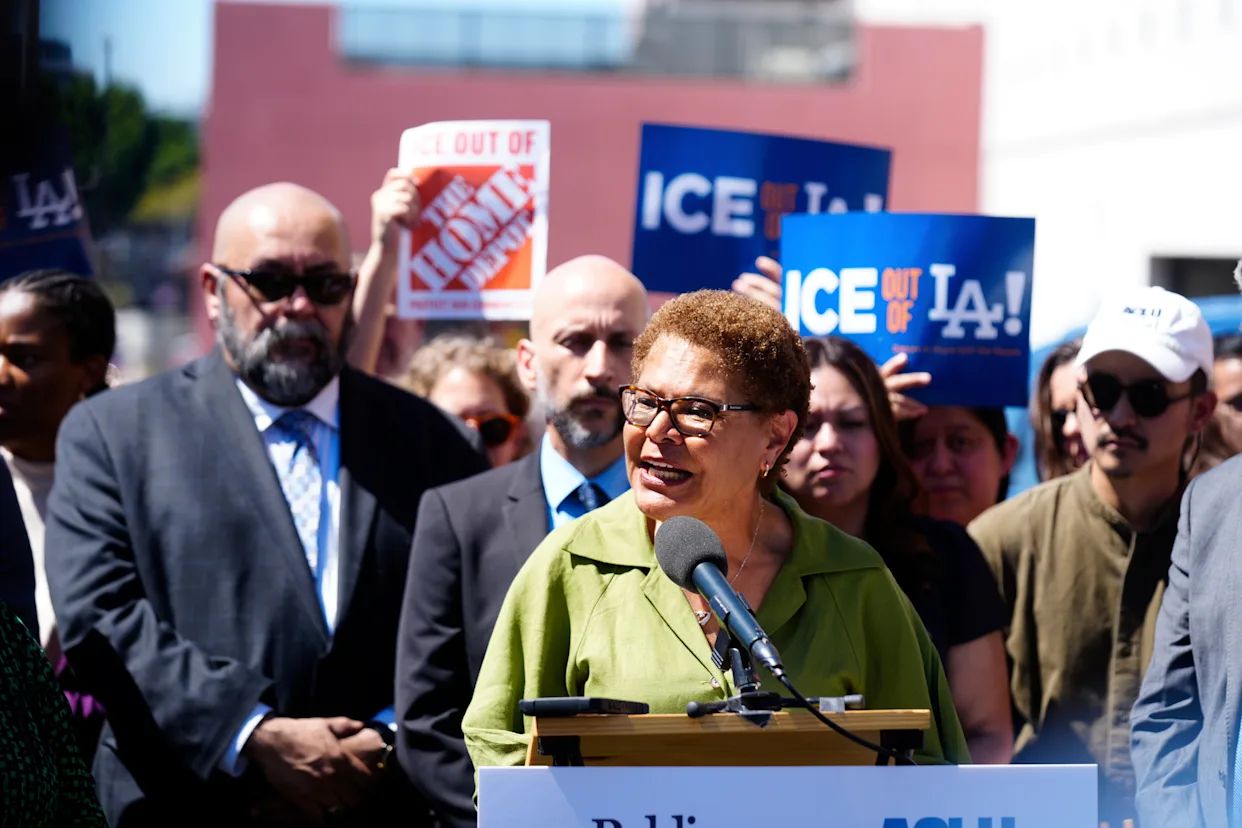The Supreme Court delivered a major win for President Trump on Monday, siding with sanity in a closely watched case on immigration enforcement. In a 6–3 decision, the Court lifted restrictions that had hampered federal agents during workplace and neighborhood raids in Los Angeles.
The question before the Court was whether immigration officers could consider factors such as language, location, and other visible signs when deciding whom to question. Lower courts had blocked those practices, calling them racial profiling. The justices disagreed, ruling that those cues can be part of establishing reasonable suspicion when combined with other evidence.
Chief Justice John Roberts, writing for the majority, stressed that the ruling does not give agents unlimited authority but restores their ability to use judgment in the field. “The Constitution does not forbid officers from considering ethnicity or language as part of a broader context,” he wrote.
For the Trump administration, the decision represents a breakthrough after years of frustration with courts that narrowed enforcement powers. Immigration officers have argued that prior limits left them powerless in major cities where offenders could easily avoid arrest. With those barriers removed, they say they can once again enforce the law effectively.
“This restores the tools we need to do the job,” said one Los Angeles law enforcement official. “We were told to ignore obvious warning signs, and that made neighborhoods less safe.”
The dissenting justices warned the ruling could open the door to abuse. But their position struck many observers as placing the rights of offenders above the safety of communities. Supporters of the decision noted that the people most likely to benefit are residents of the very neighborhoods hardest hit by crime linked to illegal activity.
The Trump administration said the Court’s decision confirms a simple principle: no one is above the law. Officials pointed to repeated cases in Los Angeles where individuals with criminal records were released because officers were blocked from pursuing clear leads.
Law-abiding Americans see the ruling as both practical and symbolic. It restores the ability of immigration enforcement to function and reinforces Trump’s central promise of law and order. It also signals that the Court’s conservative majority is willing to back strong enforcement policies rather than weaken them in the name of ideology.
For Trump, the ruling is another reminder that his approach to immigration is not only gaining traction and wider support from Americans of all backgrounds but also being upheld by the nation’s highest court.
